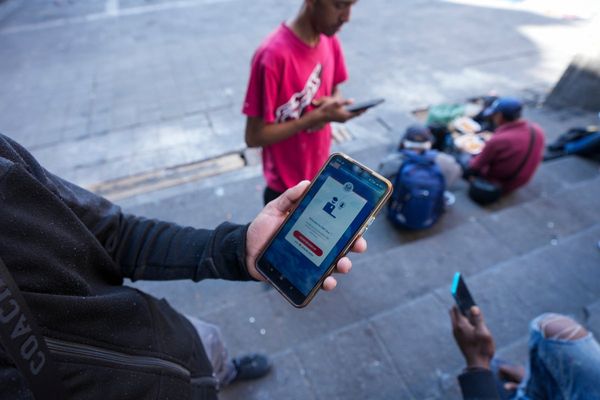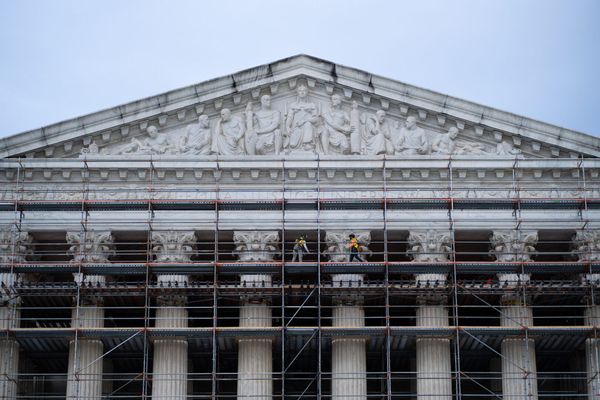
It is a strange effect of the second Trump presidency that, where Donald Trump and his allies know the ropes this time round and have grown in assertiveness, their opposition seems paralysed, rather than emboldened, by experience. After Trump’s inauguration in 2017, millions of people took to the streets. This week, a lot of Trump-haters in Washington simply skipped town for the inauguration weekend. This, it seems to me, is less an indication of resignation than caution and lingering shock. Whatever happened last time didn’t work. So now what?
It is an unnerving position, not knowing what to do, and in this case requires a lot of self-soothing in the form of mantras, “It’s only four years”, and “He’s a lame duck, anyway” (because he cannot serve another term). Opposition will not be about sending a message through the medium of public demonstration – the time for that, clearly, has passed, not least because Trump won the popular vote.
Instead, one assumes the real job of resistance will fall to armies of lawyers pushing back against Trump’s executive orders – from the president’s apparently unconstitutional attempt to revoke birthright citizenship (the ACLU lawsuit has already been filed), to the protected status of Elon Musk’s cost-cutting department (lawsuits from a variety of advocacy groups accuse it of a lack of transparency), to the weakening of job protections for career civil servants, who Trump is expected to try to fire and replace with loyalists. On inauguration day, a lawsuit filed by the National Treasury Employees Union sought to block an order signed just hours earlier on the same day.
The near-total collapse of Trump resistance within the Republican party, meanwhile, has introduced an even wilder sense of split-screen reality into an already divided US government. It was hard, this week, to watch the Democrats perform civility in the interests of upholding the peaceful transition of power, when the instincts of those present and watching were, one had to assume, to suppress a loud scream. Former presidents and members of Congress at the inauguration had almost no choice but to participate, their rebellion reduced to the tiny gesture of skipping the lunch after the ceremony. And yet the conundrum remains: it’s hard to win in battle when you abide by the rules and the other guy doesn’t.
For the American electorate, those who didn’t vote for Trump are left with the small consolation of a kind of pre-emptive schadenfreude, an overflow of bitterness that seems connected to the sourness now emanating from government, and has the power to poison us all. Witnessing the Trump supporters in the overflow stadium this week triggered no small amount of “you voted for him, and now you’re gonna find out” energy. And find out they will. While those screaming for Trump may consider tariff-stoked inflation a cost worth paying for the pleasure of feeling superior to immigrants, there are certain prices they won’t want to pay. As the crowds cheered on the richest man in the world, you wondered how many of them present were among the potential four million Americans who will lose health coverage at the end of this year when Biden’s extended tax credits – those which enable millions of people to afford healthcare they otherwise might not – expire.
Of course there are plenty of wealthy people who voted for Trump who will be insulated from the worst effects of his presidency, should it turn out that tanking the environment and slashing business regulations doesn’t send the S&P through the roof, as they hope. These people are worse, in a way, than the Maga faithful, since many of them are social liberals who have quietly traded their respectable views about immigration and abortion to vote for a lunatic who has promised them a freeze on capital gains tax.
Anyway, assuming you’re not a lawyer, what’s to be done? Until the Democrats can regroup behind someone with the velocity to win, we are in the realm of gesture politics. Four hundred employees at the Washington Post signed a letter to Jeff Bezos – plaintive letter-writing, famously, being a guaranteed way to move the heart and mind of its recipient – expressing their concerns about the newspaper’s leadership. Bishop Mariann Edgar Budde went after Trump from the pulpit, an act of moral courage so rare in Washington that Trump was forced to slump in his seat like a schoolboy.
And at the very least, this week, we have gained some clarity. From the flurry of punitive executive orders and the pardoning of rightwing extremists, the wishful thinking that swirled around Trump ahead of the election – that perhaps he won’t be that bad – has on day one proven to be wrong. He will be that bad. Better to know now: even if it is at present unformed, the size of the threat will ultimately determine the scale of the resistance.
Emma Brockes is a Guardian columnist







